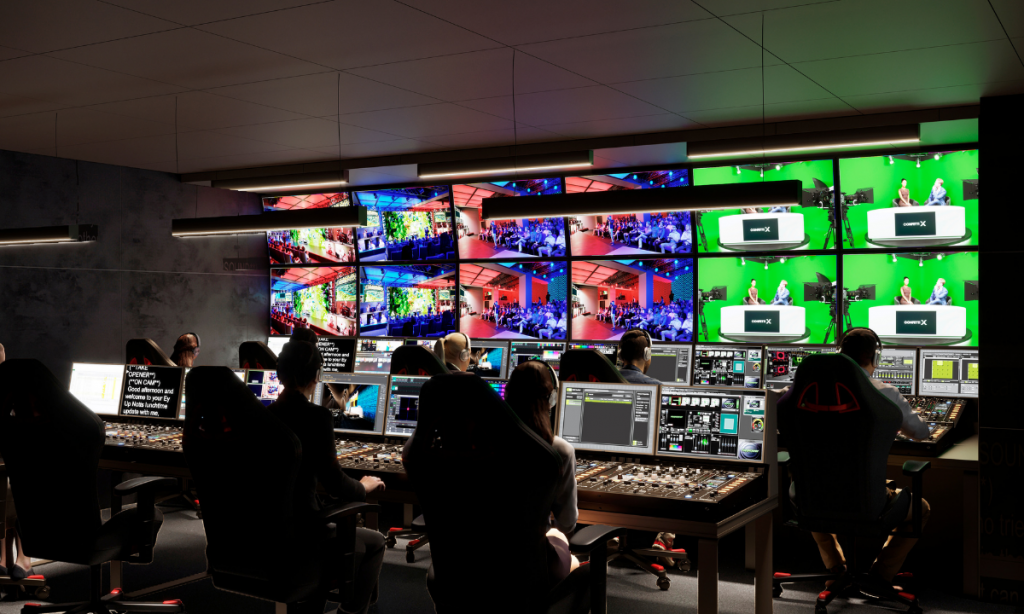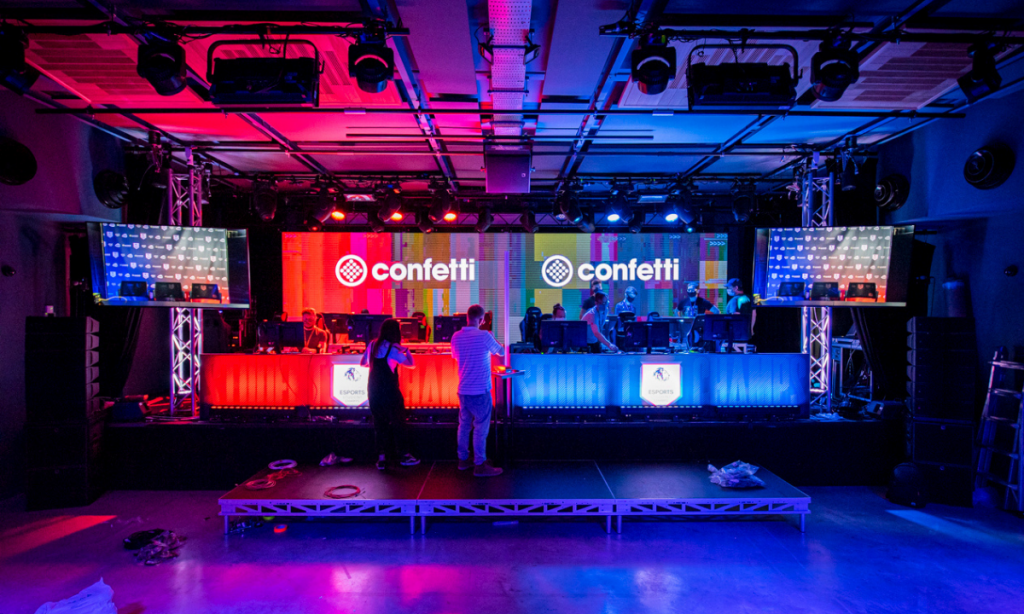In 2021 there’s no shortage of esports university courses.
This year a lot of higher education institutions around the UK, and the world, have decided to invest in programmes that teach students about potential jobs within esports. However, one of them — in particular — stands out.

Disclaimer: This piece is supported by Confetti.
Confetti, a specialist creative industry institute that is part of Nottingham Trent University, has become the latest education establishment to incorporate an esports degree programme.
Unlike some esports degrees that look to provide an all-round view of the competitive gaming industry, Confetti has established an Esports Production degree to offer a hands-on and practical learning experience within the esports sector.
As its name suggests, the course will focus on live event production; from small scale grassroots leagues to large scale leagues and finals, as well as event management, game analysis, entrepreneurship, broadcast production, understanding and using emerging technologies, and business development. Students will get the chance to work with ‘top names’ in the industry and work on real-world content creation and live event projects.
According to Confetti, this is the only programme that emphasises production for esports on this scale, which makes sense given the university’s experience in that specific field.
Programmes focused on real-life skills
Gin Rai, Confetti’s Esports manager and Higher Education Course Leader, told ESI that this new programme was ‘a no brainer’ for them. “You wouldn’t associate Confetti with traditional subjects”, said Rai, whilst also adding that the institute chose a more specific programme to make use of its experience and technology.
Rai explained the focus of Confetti’s Esports Production programme: “Our BSc in Esports Production focuses on teaching production technologies and processes used within grassroots to arena grade live esports events. We give our students access to cutting edge tech and expertise required for engagement and employment within the esports and live events sector.”
Confetti’s motto of ‘do it for real’ translates into courses that are angled towards real-life skills and using the best available technology and resources. Rai added: “It’s less about teaching them how to do something, it’s more so giving them the opportunity to communicate, present, collaborate, lead, be self-aware etc.”
Confetti also owns a live music and events venue called Metronome where students can sharpen their skills in real-world applications. The Esports Production course relies heavily on transferable skills because of that.
Working with people and being responsible for projects is something that needs to be taught within the production industry. However, due to most esports degrees looking to increase skills across a range of specific sectors, these points can often be missed.

RELATED: What’s next for generic esports degrees?
Be that as it may, it doesn’t mean that Confetti also won’t use its facilities available to them to make student experiences relate to real-world esports. BSc Esports Production students have just been involved in supporting the production of the British Esports Championship finals in a multitude of roles. “That’s what we mean by ‘Doing-it-for-real”, said Rai.
He added: “We make sure we get expert internal and external advice on our academic and strategic developments. It is of utmost importance that we always remain actively connected to the industry, to the leaders within the fields of expertise and to the top technology providers to ensure our education provision is accurate and cutting edge.
“It’s a simple concept which requires lots of hard work and upkeep, but this is what we do and will be proudly exemplifying this in our newest multi-million-pound development of Confetti X opening this academic year.”

RELATED: Confetti Institute launches esports production degree
Branding towards gamers is branding towards everyone
Rai emphasised that Confetti is sparing ‘no expense’ in getting the best technology and that students will use technology utilised in the biggest esports productions. “We want our students to be travelling the world and work with the biggest ‘players’ in the industry”
Since there’s no shortage of university-backed esports programmes, the issue of branding your degree is evident. Do you go ‘all out’ and create a separate brand catering to gamers, or do you use your own visual language to add ‘weight’ to esports?
Confetti’s tactic is the latter. Rai detailed that by branding a course towards gamers, they’d be branding it towards everyone since everyone plays games in 2021. Still, he added: “It’s necessary to brand a university course to give a clear indication of what the students are going to achieve throughout their studies, and what their destination could be after they complete their studies.”
The BSc Esports Production degree started in September 2020 and aims to provide ‘action-packed, intellectually stimulating three years’ that will prepare students for their job in esports in the best possible way. The BTEC in Esports will launch in September this year.
As esports continues to show signs of growth, it seems to be only a matter of time until even more, specific esports courses start to emerge.

